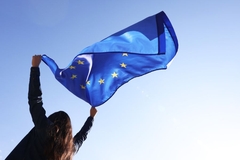K-Beauty brand d’Alba sees 210% overseas sales growth

Korean vegan beauty brand d’Alba has reported a 210% surge in overseas sales in 2024, reaching KRW150 billion (approximately US$100 million). The company says its international revenue now accounts for 45% of its total income, up from 22% the previous year.
Recognized for its dominance in the Korean market, d’Alba has transitioned to the international stage. In 2023, the brand’s overseas revenue stood at US$35 million, showcasing the scale of its growth within a year. Unlike many K-beauty brands that heavily rely on single markets such as China or the US, d’Alba’s says its balanced sales distribution across multiple regions ‘sets it apart.’
The brand wants to sustain its upward trajectory and expand its retail channels. A spokesperson comments: “These global markets are still at the early stage. We’re receiving many inquiries from large retail platforms worldwide. Our focus on channel expansion and the new products such as beauty devices will drive further growth.”
Claim to fame
d’Alba cites its flagship product, the White Truffle First Spray Serum, as central to its global expansion. The product gained initial popularity in Korea as the “flight attendant mist” for its spray format and premium white truffle formulation and has since resonated with consumers in diverse markets.
Other key contributors include the Waterful Sunscreen and Double Cream, which have found strong demand in regions such as Japan, ASEAN countries, Europe, North America and Russia.
As K-beauty continues to gain traction globally, d’Alba’s strategic positioning and strong performance highlight the growing influence of Korean indie beauty brands on the international stage.
K-Beauty on the rise
Personal Care Insights has previously reported on the growing demand for K-Beauty in cosmetics. According to Market Defense, a marketing consultancy based in the US, online trends with hashtags such as #kbeautymakeup drive awareness and traffic for K-Beauty brands on Amazon. Searches with this tag were up 85% year-over-year on TikTok. Major companies tap into this demand, leading to multiple partnerships and global expansions.
L’Oréal, for example, recently acquired its second Korean beauty brand, Dr. G, this year. The move aligns with an uptick in Western demand for Korean skin care products — with trends such as ‘glass skin’ garnering global attention on social media.













